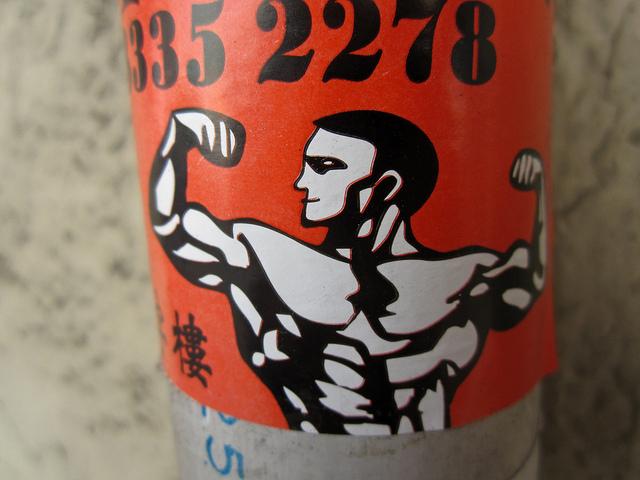Being a top 20 defence player
Posted By Peter Jennings on October 28, 2014 @ 06:00
 [1]The Australian Institute of International Affairs ran a high-quality conference in Canberra yesterday around the theme of ‘Foreign Policy for a Top 20 Nation’. It’s an intriguing theme, obviously informed by the G20 leaders’ meeting commencing soon in Brisbane. I participated in a panel on strengthening Australia’s security. My starting point was to suggest that there’s a surprising gap between the reality of our top 20 status and how we think of Australia’s security role in the world.
[1]The Australian Institute of International Affairs ran a high-quality conference in Canberra yesterday around the theme of ‘Foreign Policy for a Top 20 Nation’. It’s an intriguing theme, obviously informed by the G20 leaders’ meeting commencing soon in Brisbane. I participated in a panel on strengthening Australia’s security. My starting point was to suggest that there’s a surprising gap between the reality of our top 20 status and how we think of Australia’s security role in the world.
In terms of defence spending Australia is well up the top 20 ladder. The Economist rated Australia as the world’s 12th biggest defence spending in US dollars in 2012. At US$25.1 bn we ranked ahead of Iran on US$23.9 bn and behind a more immediately threatened South Korea on US$29 bn. In per-capita terms, Australia is 8th on The Economist’s list on US$1,140, ahead of the UK on $1,016.
The dollars show that Australia is indeed a global player on defence and security, but psychologically we tend to undersell the capability and shaping capacity of the Australian Defence Force and other contributing elements of national security.
Since the time of the 1999 East Timor operation, Australia has played a consequential role in regional and global security. In some respects we’re the victims of our operational success. A slightly uncomfortable realisation is dawning, which is that other countries expect us to play a larger security role. We’re expected to lead in maintaining stability in our nearer region. We’re expected to make a significantly better than symbolic contribution to Coalition operations in the Middle East. We’re expected to have views that matter in the United Nations Security Council, North Asia, the Indian Ocean Region, and as a NATO ‘enhanced partner’.
Several times this year foreign colleagues I’ve spoken to observe that Australia needs to stand up and acknowledge that reality. We may be a top 20 nation, but quite a few of us don’t think we are—or don’t want us to be that—and consequences flow for how we act on the international stage.
If we accept that our top 20 status reflects how Australia should behave internationally, then we’ll need every cent of the 2%of Gross National Product to be spent on Defence by the early 2020s. There’s currently bipartisan support for that level of spending. Being a consequential power means we’ll need forces able to project military power; we’ll need to develop deeper defence relations with key friends; we’ll need to step up our involvement in peacekeeping; and we’ll need to accept the risks of deploying combat forces in Coalition operations.
If we choose not to live the reality of being a top 20 power, there are consequences too— including that we’ll lose credibility as an ally of the US and as a partner of strategic choice for defence cooperation by others in the region. We’ll lose the capacity to underpin our diplomatic position with effective military capability. We’ll become much less effective in promoting our strategic interests in the Asia-Pacific, where strategic competition is heating up and risk levels are rising.
There are a few areas where—as a credible top 20 nation—we’d need to invest more thinking, attention and resources if we hope to strengthen Australia’s security.
First, we need to take new, big steps to build a real strategic relationship with Indonesia. That means going beyond the comfortable and confined defence relationship we currently have to look at much deeper engagement that strengthens Indonesian defence capabilities. We need to think more in joint terms about what our defence forces should and could do together.
Second, we need to get serious about the extent of our interests beyond our immediate region. Defence-of-Australia thinking has effectively expanded in its scope. Think of it now as ‘Defence of Australia Plus’, the plus reflecting a need to engage in the broader security concerns of the Indo-Pacific.
Third, we’ll have to address Australia’s capacity to protect our strategic interests in a much more competitive and risky region. In a military sense, that goes to the requirement to sustain force-projection capabilities that deliver meaningful military capacity. More often than not, that’ll be in an alliance or coalition context.
Finally we need to make sure we’re investing in the level of intelligence gathering and analytical capabilities needed to help us understand our region. We can’t afford to take a part-time interest in places like Africa and the Middle East, devoting effort there only when operations require us to do so.
In other words, in defence as in foreign policy, a top 20 nation needs to think of Australian interests as they really are—shaped by global events and not just regional ones. That will require some significant adjustments of attitude and thinking in coming years.
Peter Jennings [2] is executive director of ASPI. Image courtesy of Flickr user istolethetv [3].
Article printed from The Strategist: https://aspistrategist.ru
URL to article: /being-a-top-20-defence-player/
URLs in this post:
[1] Image: https://aspistrategist.ru/wp-content/uploads/2014/10/7231202002_79a3d8b855_z.jpg
[2] Peter Jennings: https://www.aspistrategist.ru/about-aspi/aspi-staff/executive/peter-jennings
[3] istolethetv: https://www.flickr.com/photos/istolethetv/7231202002
Click here to print.